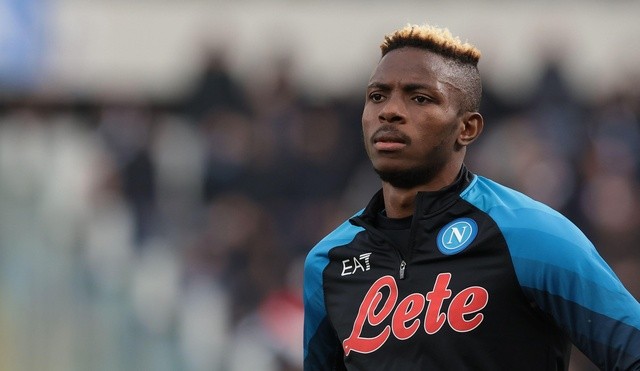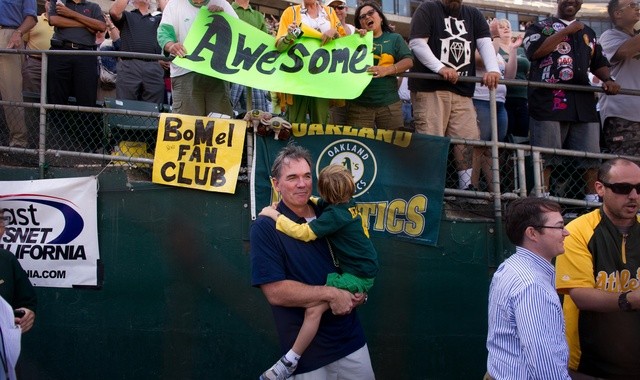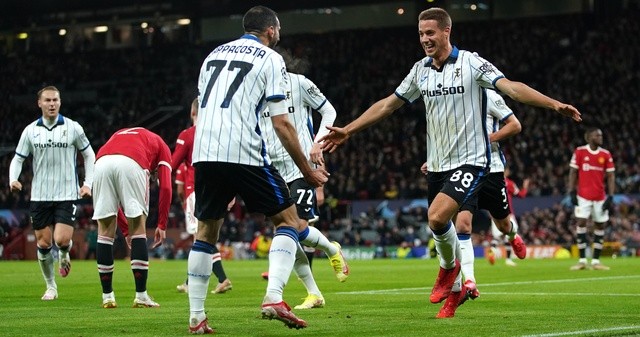Profile: How Hannibal Lector’s film producer took Napoli from bankruptcy to the Scudetto

Alamy | SSC Napoli president Aurelio De Laurentiis during a friendly match against Espanyol.
Film producer Aurelio De Laurentiis took on a bankrupt club, the football authorities and his own fans. Now Napoli are to be crowned champions. Here’s how he did it.
In a football country drowning in losses, Napoli have via prudent and ruthless transfer dealings kept away from the abyss and steered past faltering rivals.
Why it matters: Napoli’s rise from the ashes represents a salutatory lesson for prospective owners wanting to turn around a sleeping giant.
The perspective: De Laurentiis and his management team ignored Naples’ “cultural entrenchment” and took an “outsiders’” path to glory.
27 April 2023 - 4:03 PM
The wait has lasted almost a third of a century, a period which has encompassed the entire rise and fall of Italian football, but at some point, over the next week or so, Napoli will be crowned Serie A champions for the third time.
Victory will summon wild celebrations across southern Italy and among the Neapolitan diaspora that will last all summer. But for the club’s owner and president, Aurelio De Laurentiis, the victory will represent a personal vindication after years of battles which have gone right up to the line.
De Laurentiis is a film producer and showman at heart, and rarely a week goes by without his name hitting the front and back pages. He has previously suggested cutting game times from 90 to 60 minutes and abolishing UEFA in favour of direct power for Europe's biggest clubs. He has also been critical of various powers, including UEFA, FIFA, his own fans, collective television deals and the Italian political establishment, among others.
Napoli, the club De Laurentiis bought out of bankruptcy and stuck in Serie C 19 years ago, started the season minus a core of its most senior players: Kalidou Koulibaly was sold to Chelsea, and Fabian Ruiz to PSG; the team’s skipper Lorenzo Insigne and its all-time top scorer, Dries Mertens left too. It lags far behind other Italian clubs in terms of revenue. And yet, they end the season – barring some unforeseen catastrophe – champions, likely with six games to spare.
How did the charismatic but controversial De Laurentiis do this?
Film heritage
Born in 1949, De Laurentiis and his family are synonymous with cinema on both sides of the Atlantic. His late uncle, Dino De Laurentiis, was a well-known producer, and his father, Luigi, collaborated with Federico Fellini. Aurelio, likewise, made a career in the film industry, setting up a production company, Filmauro, with his late father in 1975 that today has 400 titles to its name, which include the Hannibal Lector series and the 2006 Oscar winner, Crash. His series of “Cinepanettone” movies – light-hearted Christmas comedies – have become a kind of cultural phenomenon in Italy, making him rich.
He has claimed to Napoli fans sceptical of an outsider to have followed Napoli since being taken as a child (“While still using a pacifier”) by his father in the early 1950s. But it was when the club was at its lowest ebb that he purchased Napoli in 2004.
Having won a Maradona-inspired Serie A title in 1990 and despite subsequently boasting players like Gianfranco Zola, Daniel Fonseca and Careca, by the late 1990s the club had fallen on hard times. Relegated to Serie B in 1997/98 after winning just two games all season, they yo-yoed between the top flight and second tier, before being declared bankrupt in 2004 after being denied a license to participate in Serie B.
De Laurentiis re-established the club in Serie C1 under the name Napoli Soccer – the Italian FA would not let them use the historic name Società Sportiva Calcio Napoli until May 2006 – where they attracted crowds of more than 50,000 on some occasions. They returned to Serie B in 2006, Serie A two years later and UEFA club competition in 2010. Trophies followed too: Coppa Italia in 2012, 2014 and 2020.
There were also brushes with Serie A success too: in 2016, 2018 and 2019 they finished Serie A runners, on one occasion hitting a club record 91 points in the process. Last season they were third. It would be wrong to characterise this season as a Leicester City-type shock.

Player valuation update: Napoli duo surge past €100 million mark
4 April 2023 - 12:08 PM
Nor is it a “Moneyball”-type success or predicated on an especially strong youth system. What de Laurentiis has always done is hire strong sporting directors who have recruited well – sometimes at high prices (Victor Omishen cost €72 million), but usually from Italian clubs lower down the chain (such as Piotr Zielinski), or the best up and coming players from leagues outside the Big 5 leagues (Kim Min Jae and Khvicha Kvaratskhelia signed from Fenerbahce and Rubin Kazan last summer).
There has also never been fear in sacking underperforming managers, no matter what their reputation or previous achievements at the club – for example Carlo Ancelotti, who had led Napoli to runners up in May 2019 but was sacked the following December.
Contradictory voice
De Laurentiis has also become one of the most prominent voices on the state of the Italian game and what can be done to fix it. He has been frequently critical about what he simultaneously sees as over- and under-regulation of Italian football.
An example was when he criticised the Melandri law – which imposed the collective sale of media rights on Italian sport in 2008 – in an interview last year. The Melandri law “has been breaking our balls for 20 years [six]” he claimed, but in the same breath saying “The Italian state is absent and procrastinates.” He then expressed the need for a more proactive approach from the Italian government in addressing the financial struggles faced by clubs in the country.
Equally he has also expressed his reluctance to accept municipal funds for rebuilding Napoli’s stadium, stating there needed to be “a removal of obstacles” by public officials “in a country that is in a quandary.” Yet he has also addressed the challenges faced by the club and the broader football industry, advocating for reforms and changes to ensure a sustainable future for the sport.

Alamy | De Laurentiis purchased SCC Napoli in 2004.
His voice is most prominent among the chorus of dissent against proposed plans to allow external investors to invest in Serie A's media business. Speaking to Reuters in February, de Laurentiis stated, “I have always been against selling.” Instead, he advocated for producing content and then distributing it to various platforms such as Amazon, Netflix, Apple, DAZN and Sky.
Unloved character
Yet despite the renaissance of the club and his prominence within Italian football, De Laurentiis is far from loved by Napoli’s fans. Among some he is known as “the pimp” and even worse names.
Even as the title has neared there have been protests from supporters, angry at high ticket prices, and a stand off with followers. “There is an abysmal and unbridgeable distance between De Laurentiis' Naples and a good slice of Naples,” is the view of Massimiliano Gallo who writes for the popular Il Napolista website.
Perceived parsimony in the transfer market, public attacks on ultras and fan culture (he has said that Italy needs to adopt the bravery of Margaret Thatcher in tackling hooliganism) as well as the dual ownership of Bari, which is run by his son Luigi, has frequently caused consternation with Napoli fans.
The protest movement against him is called A16, a reference to the highway between Naples and Bari. But De Laurentiis has often seemed impervious, using an interview earlier this year with Il Mattino to reveal that he rejected an offer worth €2.5 billion for Napoli, which he referred to as his “family toy”, citing his Neapolitan roots and attachment to the club (“What do I do, buy myself a club in the Premier League?” he pondered.).
“De Laurentiis is a stranger in the city, often disparagingly called the Roman,” is the view of Gallo.
Economic limitations
A look under the bonnet of Napoli’s finances don’t reveal any particular magic going on. Napoli only had the sixth largest revenue in Italy in 2021/22. Their €165 million turnover was just 40 per cent of Juventus’s turnover and half of Inter’s.
However, it would be fair to say that they are less badly run than other Italian clubs. Year in year out Italian clubs accumulate eye-watering losses. The current top five Serie A teams have accumulated just shy of €2 billion in pre-tax losses over the past five seasons. Add sixth placed Inter and that sum tops €2.5 billion.
Napoli, despite missing the Champions League in the last three full seasons, have limited those combined losses to €118.8 million, or 13 per cent of its revenues, which, given that the similarly sized and placed Roma have accumulated €640 million losses in that period (63 per cent of turnover), seems impressive – or perhaps less unimpressive.
How have Napoli managed this despite the turmoil that regularly consumes the Italian game, and which has been exacerbated by the pandemic?
Napoli's player sales hold significant importance in their business strategy, as they rely on periodic transfers of their star players to maintain financial equilibrium. Only Juventus have higher profit from player sales in Italy over the past five years, and prior to that huge profits on the likes of Gonzalo Higuain’s 2016 transfer to Juventus and Edinson Cavani’s 2014 move to PSG helped the club’s financial results.
Unfortunately, the deflated state of the transfer market following the Covid pandemic has dealt a severe blow to their financials. The profits generated from player trading have witnessed a decline for two consecutive years, plummeting from €96 million in 2020 to €48 million in 2021, and further down to €4 million in the last season. In fact, their performance in the 2021/22 season marked the club's lowest since 2011/12, a cause for concern.
Nonetheless, the upcoming season promises a different narrative, with the club reporting €73 million in revenue from notable player sales last summer. This windfall was mainly attributed to transfers such as Kalidou Koulibaly's move to Chelsea and Fabian Ruiz's transfer to PSG.
However, Napoli may not be immune from the investigations that have consumed Juventus and which have revealed a hall of mirrors in the player trading system, where lax regulation and creative accounting can distort the market. The practice of “plusvalenza”, or capital gain, where clubs manipulate the value of players in transfer deals to meet financial requirements and regulations almost certainly transcends the Bianconeri.
Napoli's 2021 transfer involving Victor Osimhen allowed the club to reduce costs associated with the player's acquisition by sending four minor players to Lille as makeweights in the deal, which was recorded as a capital gain on the club's books. The Naples prosecutor is reportedly investigating the transfer.
Unbreathable climate
Despite the imminent success and the intrinsic link between club and city, Gallo attributes the success as being in spite of this fact. He attributes the single-mindedness of De Laurentiis, manager Luciano Spaletti and sporting director Cristiano Giuntoli in what he terms “an unbreathable climate” as being at the heart of the success. They ignored implorations to keep Mertens, Koulibaly and Insigne last summer, even to the extent where they were advised to stay away.

Alamy | Napoli's attack has been lethal since the arrival of Osimhen and Kvaratskhelia.
A hostile and negative atmosphere pervades at the Maradona Stadium, despite success. Gallo writes about a citywide introversion and “cultural entrenchment” that would be familiar to anyone who has read Elena Ferrante’s Neopolitan novels.
“Every time Napoli play away from home, an atmosphere of joy is perceived that hasn't been felt at the Maradona for years,” according to Gallo. “This Naples, the Naples of De Laurentiis, is above all the Naples of those Neapolitans who do not live in Naples. And they are many, many, the vast majority. It is the Neapolitans who make their way around the world with their self-denial, their sacrifices, the quality of their studies. There is an ever wider and unbridgeable gap between those Neapolitans stuck in the city and those who have instead gone out to meet the world.”
Golden era
Napoli’s two previous Scudettos, the Maradona inspired title wins of 1988 and 1990, came at the start of the Golden era of Italian football. In the twenty years that followed Italian clubs had a stranglehold on the planet’s best players – 11 players at Italian clubs won the Balon D’or in this period – and won 25 European trophies between them during this time. It arguably culminated in Italy’s 2006 World Cup win.
Now Italian football is in crisis, its clubs haemorrhaging cash, broadcasters not interested in its international offering, seemingly permanently hamstrung by the Premier League’s dominance. Could this dominance be challenged? Or will Napoli accede to the inevitable, losing not just their star players to cash-rich EPL giants, but to run of the mill rivals?
“Broadcast sits at the heart of England’s dominance and while no empire lasts forever – you saw how the EPL overcame Serie A previously – it is impossible that there will be a change of track for years,” one senior broadcast executive told me this week.
Despite all the misgivings about De Laurentiis, Gallo tells me via email of his excitement.
“From a footballing point of view and because Naples has shown that it can also give lessons in management and business economics.”

